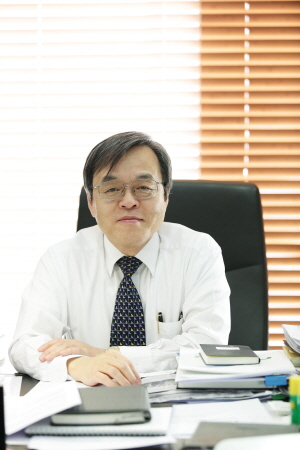
Professor SEO Jeong Sun
Korean medical researchers have found genetic mutants which cause lung cancer by analyzing a genome of cancer tissues from patients suffering from lung adenocarcinoma, which is responsible for 40% of the annual worldwide occurance of lung cancer. They also discovered four specimens of fusion genes that are combined into growth enzymes. This research was unique since it enabled establishment of a new method of approaching genes presumably specific to Koreans, whereas previous methods were confined to Europeans’ genetic information.
A joint research group led by Professor SEO Jeong Sun of Seoul National University Genomic Medicine Institute (SNU GMI), Professor KIM Young Tae (Dept. of Cardiothoracic Surgery, SNU), and Professor KANG Jin Hyoung (Dept. of Oncology, Seoul St. Mary’s Hospital) collected samples of lung carcinoma tissues from 200 lung cancer patients. These samples were used to carry out RNA transcript sequencing, which is a biotechnological method identifying the order of bases incorporated in an RNA molecule transcribed from DNA. Among 87 of the samples, no previously known genetic variation information was found. As a result, they obtained new genetic mutants of cancer, and 43 fusion gene modifications. Also, those genetic mutants were found in patients with smoking experience more complex than non-smokers. That is, smoking is a critical factor which directly and extensively activates oncogenes, genes that are related to cancer.
Fusion genes are suspected of being a cause of cancer since they are hard to control compared to normal genes. Among the fusion genes that are related to growth, eight specimens of fusion genes were detected. Four of those eight were discovered for the first time ever. Scientists expect that these discoveries will lead to a new diagnostic method and target treatment.
Apart from these discoveries, the analysis of RNA transcripts indicates that smoking triggers an enormous amount of genetic variation. It was reported that the genes related to growth in the smokers (47 people) showed point mutations (a mode of mutation where one base of DNA is altered to another) occur to a much greater extent in this group than in the non-smokers (36 people). According to Researcher LEE Won Chul of SNU GMI, this indicates that a more sensitive strategic target treatment will be required since smokers’ RNA transcripts are more severely damaged than non-smokers’.
Furthermore, this study is very meaningful in that it offers a large-scale genomic analysis of Asians as to lung adenocarcinoma for the first time. The research conducted on 18 Koreans led to the finding of more than 9.5 million genomic variations, among which more than 2.2 million were new discoveries. These findings are considerable, taking into account that the genomic variations in humans amount to approximately 30 million. Professor SEO’s research group said that previously, research had been limited in order to help determine whether newly found variation was expressed only in individuals or specific to certain ethnic groups. With this new research, Professor Seo’s group argues that it is now possible to begin determining which variations are common or rare to Koreans, and that it will be helpful to understand frequently occurring diseases among Korean people and efficient drugs for their treatment. In the long run, the research group will expand as part of the Asian Genome Variation Project, analyzing 1,000 Asians’ genomes, which is expected to help establish customized medical care.
There has been steady support from government departments, such as the Ministry of Education, Science and Technology (MEST) and the Ministry of Knowledge Economy (MKE). In addition, vital financial support has come from Green Cross Mark, as well as cutting edge sequencing methods provided by Atinum Partners and Macrogen. Professor Seo’s research group published the paper ‘The transcriptional landscape and mutational profile of lung adenocarcinoma’ in the journal Genomic Research in September 2012.
Written by KIM Hayoung, SNU English Editor, k1h2y3@snu.ac.kr
Reviewed by Eli Park Sorensen, SNU Professor of Liberal Studies, eps7257@snu.ac.kr
Proofread by Brett Johnson, SNU English Editor, morningcalm2@gmail.com

